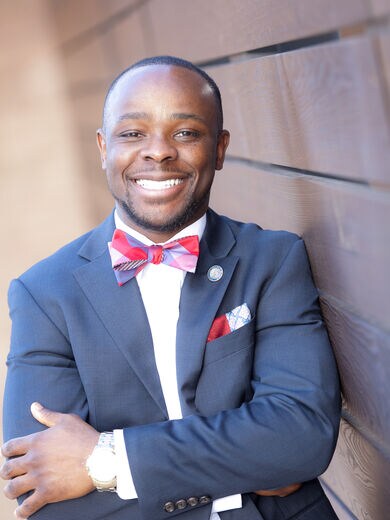
The Fire This Time: Educational Setbacks Could Cost Kids Their Future
What’s at stake for communities of color if our policies don’t prioritize lost learning.
"And now you must survive because we love you, and for the sake of your children and your children's children."
—James Baldwin, "The Fire Next Time."
Black History Month is a time for celebrating the progress and success of African Americans and Black people in the U.S. We’ll see quotes, events, and other celebrations that highlight the tremendous accomplishments and contributions of Black people, often despite difficult odds.
While the celebrations are deserved, all Americans (Black and non-Black) should level expectations and manage their optimism. Education and economic gaps are resulting in a loss of talent in Black communities and communities of color that will intensify racial, economic, health, and other challenges, if unaddressed.
The “fire” this time is the disproportionate educational setbacks Black people and people of color are experiencing during the COVID-19 pandemic and the likelihood that those setbacks will exacerbate economic inequality. Education won’t solve all of our problems, but a lack of opportunity for quality education will surely widen them. The future of policy and education must prioritize this issue.
If as Malcolm X once said, “education is the passport to the future,” many students will be unprepared to navigate the world. For example, in the spring and continuing into the fall of 2020, many school districts transitioned to online learning. However, approximately 16.9 million children―one out of three Black, Latino, and American Indian/Alaska Native households―lacked access to the internet for online learning. And, according to a report from McKinsey & Company, there is already evidence of disproportionate learning loss among students of color. Students of color started school this past fall about three to five months behind grade level in math, compared to white students who were about one to three months behind. Further, the report suggests that students of color are more likely to remain in remote learning; by the end of this school year, they could end up being six to 12 months behind grade level.
Unfortunately, recent data reveals similar patterns for older students of color at the postsecondary level. The National Student Clearinghouse Research Center found that Black undergraduate students saw one of the greatest enrollment declines by race and ethnicity in the summer of 2020 with an 8.3% decline compared to 4% for white students. Black students saw even greater declines in community college enrollment at 10.5%. While the final fall report did not include a demographic breakdown, previous data showed Native American and Black students experiencing greater declines than other races/ethnicities.
The future of policy and education in Black communities and other communities of color has to account for significant and disproportionate learning losses that occurred during the past year. Policymakers must prioritize economic mobility to reduce the staggering racial wealth gap for postsecondary students and their families that has remained unchanged for years. As of 2019, the median wealth of white families was $188,200; the median wealth of Black families was $24,100; and the median wealth of Hispanic families was $36,100, according to data from the Federal Reserve. Black people have less access to employer-sponsored retirement plans, significantly less in liquid savings, and much lower homeownership rates, the Federal Reserve reports.
Disproportionate learning losses could result in Black students earning about $2,186 a year less over a 40-year working life and, for Hispanic students, $1,809 less a year. While these economic losses will be linked to the pandemic, recent COVID-19 health disparities are the result of longstanding systemic racism and continue through economic disparities.
Despite all factors (and there are many), family income is still the greatest predictor of success, and one’s level of education is closely tied to future earnings. It’s no surprise that toward the end of Dr. Martin Luther King Jr.’s life, he emphasized the importance of greater economic success and its connection to civil rights. Building a stronger economic base in communities of color is often overlooked in discussions of King during Black History Month. In fact, it was a key point even in his last speech to Memphis sanitation workers the night before his assassination.
What does this mean for the path forward? This moment calls for a nuanced approach to education policy, one that prioritizes the educational setbacks that occurred during the coronavirus pandemic for Black students and other students of color. For example, young children who could not attend in-person school will likely have more significant challenges acclimating to a “normal” in-person school climate. Students may show up with greater undiagnosed mental health challenges. Clark County School District in Las Vegas has seen a surge in suicide with 22 students committing suicide, the youngest one being just nine years old. Thus, school policies should be mindful of not penalizing students for reasonable, non-standard behavior as they adjust to their new normal. Doing so will ensure we do not continue to see disproportionate suspension rates among students of color, causing greater learning loss and inequities.
Further, policymakers must be cognizant of the economic-linked issues tied to the educational problems they want to solve. While ensuring students have access to broadband is critical, such solutions are insufficient in school districts with large numbers of homeless or transient families. At the postsecondary level, securing childcare and transportation are likely greater challenges for working adults than accessing curriculum and instructional materials. Additionally, communities that are the furthest behind require the most investments for the future’s high-demand jobs that will come out of the pandemic. These workforce development solutions and policies must also address systemic issues that disproportionately impact communities of color in the broader labor market ecosystem, such as training and job access, retention, pay, and other issues of fairness.
More broadly, policymakers, educators, and communities should always consider these questions: What issues are correlated with the problem to be solved? What are the intended and unintended consequences of proposals being considered? Have the individuals most impacted by the problem had a chance to provide authentic feedback and co-create solutions? What tangential issues may arise for which we need to plan?
For example, students who did not continue their education through the pandemic will be less likely to have the skills needed for emerging industries. They will also have a harder time finding employment and will likely become discouraged workers who drop out of the labor pool entirely. That would increase demand for social services and may eventually result in more crime. We need to prevent this from happening at all costs.
We should not delay today what we know will be more costly tomorrow. In the spirit of Angela Davis, we must “change the things [we] cannot accept.” We cannot accept the educational setbacks Black people and communities of color experienced during the pandemic. The moral, spiritual, ethical, and financial cost is too great for us all. The stories of achievement we hear during Black History Month should be a reminder of potential leaders we may miss out on in the future if we don’t prioritize the disproportionate learning losses in our communities.

Manny Lamarre is a 2009 Miami-Dade alum and senior program associate at WestEd, focusing on workforce development and education initiatives, technical assistance, and research that leads to economic mobility for youth and adults. Manny formerly served as a governor’s appointee as the founding executive director of the Nevada Governor’s Office of Workforce Innovation where he supported and led the implementation of the state’s workforce vision and policies.
We want to hear your opinions! To submit an idea for an Opinion piece or offer feedback on this story, visit our Suggestion Box.
The opinions expressed in this piece, and all others in our Opinion section, represent those of the authors and do not necessarily reflect the views and opinions of the Teach For America organization.
Sign up to receive articles like this in your inbox!
Thanks for signing up!
Content is loading...







